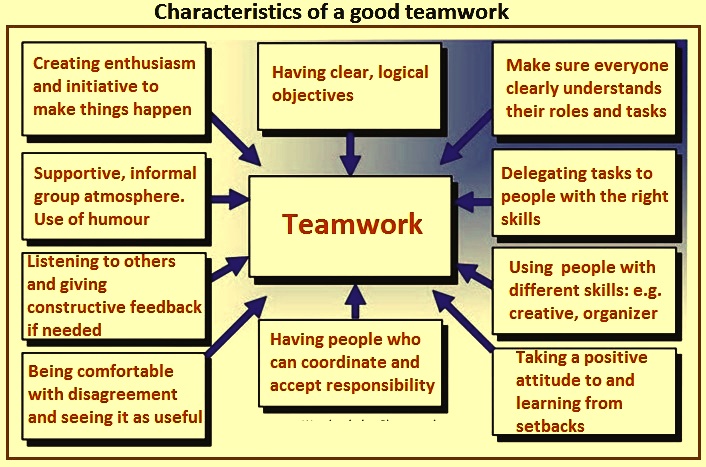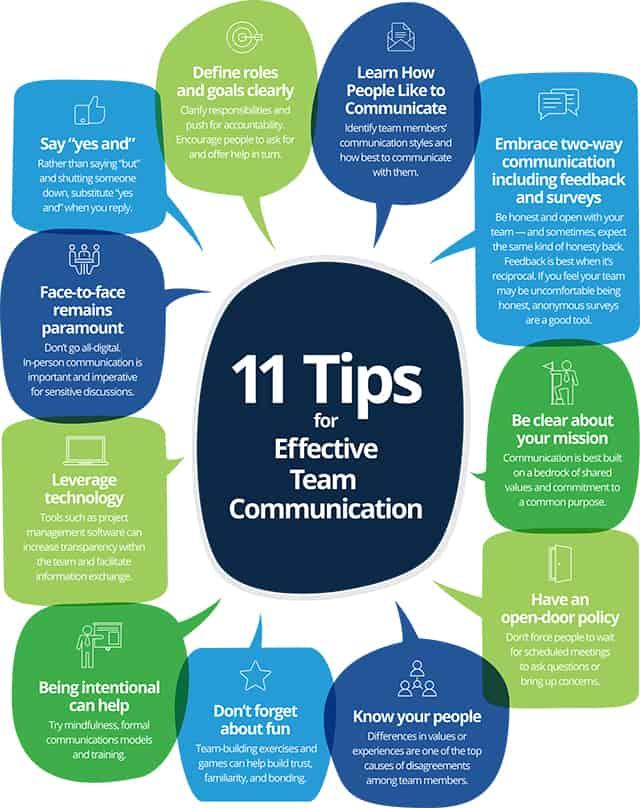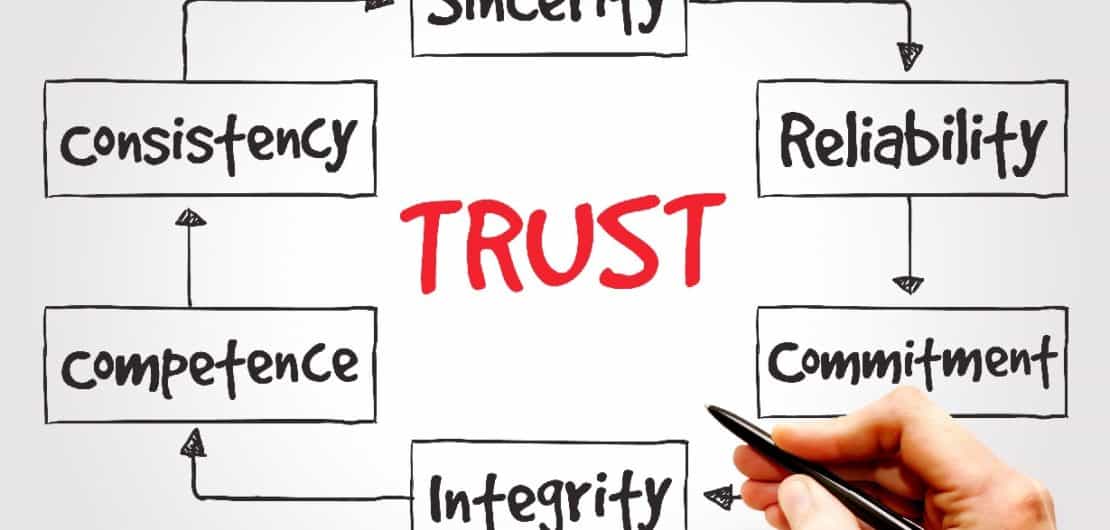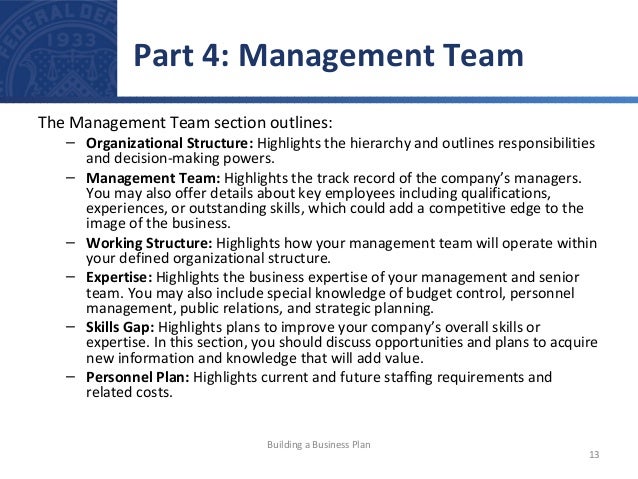The Importance of a Well-Defined Business Plan
A well-defined business plan is the foundation upon which a successful management team is built. It serves as a roadmap, outlining clear goals, defined roles, and a cohesive strategy that guides the team’s decision-making and actions. A comprehensive business plan ensures that all team members are aligned and working towards the same objectives, thereby fostering a sense of unity and purpose.
By establishing a clear direction, a business plan helps to prevent confusion and miscommunication, which can lead to costly mistakes and decreased productivity. It also enables the management team to make informed decisions, allocate resources effectively, and measure progress towards their goals. Furthermore, a well-defined business plan provides a framework for accountability, ensuring that each team member is responsible for their specific tasks and outcomes.
In today’s fast-paced and competitive business environment, a business plan is more crucial than ever. It helps management teams to stay focused, adapt to changing circumstances, and capitalize on new opportunities. By regularly reviewing and updating their business plan, management teams can ensure that they remain on track, even in the face of uncertainty or adversity.
For instance, a business plan can help a management team to identify potential risks and develop strategies to mitigate them. It can also facilitate the development of contingency plans, enabling the team to respond quickly and effectively to unexpected challenges. By having a clear plan in place, management teams can minimize the impact of disruptions and maintain business continuity.
In addition, a well-defined business plan can help to attract investors, secure funding, and build credibility with stakeholders. It demonstrates that the management team has a clear vision, a solid understanding of the market, and a robust strategy for achieving their goals. By presenting a comprehensive business plan, management teams can instill confidence in their stakeholders and establish a strong reputation in their industry.
Ultimately, a well-defined business plan is essential for building a successful management team. It provides a foundation for clear communication, collaborative decision-making, and a shared vision. By establishing a comprehensive business plan, management teams can set themselves up for success, drive growth, and achieve their goals.
Key Characteristics of an Effective Management Team
An effective management team is the backbone of any successful organization. It is the driving force behind the development and implementation of a well-defined business plan, and it plays a critical role in achieving the company’s goals and objectives. But what sets a high-performing management team apart from others?
One of the key characteristics of an effective management team is strong communication. This involves fostering open dialogue, active listening, and constructive feedback among team members. When communication is clear and transparent, team members are better equipped to work together towards a common goal, and they are more likely to identify and address potential problems before they become major issues.
Collaborative decision-making is another essential quality of a high-performing management team. This involves working together to make informed decisions that take into account the diverse perspectives and expertise of each team member. By leveraging the collective knowledge and experience of the team, management teams can make more informed decisions that drive business success.
A shared vision is also critical to the success of a management team. This involves having a clear understanding of the company’s mission, values, and goals, and working together to achieve them. When team members share a common vision, they are more likely to be motivated and engaged, and they are more likely to work together towards a common goal.
Examples of successful management teams can be seen in companies such as Google, Amazon, and Microsoft. These companies have all achieved great success through the development and implementation of effective management teams. For instance, Google’s management team is known for its collaborative approach to decision-making, and its emphasis on innovation and creativity. Amazon’s management team, on the other hand, is known for its customer-centric approach, and its focus on delivering exceptional customer service.
In addition to these characteristics, a high-performing management team should also have a clear understanding of the company’s business plan and its role in achieving the company’s goals. This involves having a deep understanding of the company’s products or services, its target market, and its competitive landscape. By having this understanding, management teams can make informed decisions that drive business success and achieve the company’s goals.
Furthermore, a effective management team should also be able to adapt to changing business needs and circumstances. This involves being agile and flexible, and being able to pivot quickly in response to changes in the market or the company’s circumstances. By being able to adapt to changing business needs, management teams can stay ahead of the competition and achieve long-term success.
How to Assemble a Winning Management Team
Assembling a winning management team is crucial to the success of any organization. A well-structured team can help drive business growth, improve productivity, and increase employee engagement. However, building a high-performing management team requires careful planning, strategic recruitment, and effective onboarding.
The first step in assembling a winning management team is to define the skills and competencies required for each role. This involves identifying the key responsibilities and tasks associated with each position, as well as the skills and qualifications needed to perform them effectively. By clearly defining the requirements for each role, organizations can attract the right candidates and build a well-rounded team.
Recruitment is a critical component of building a winning management team. Organizations should use a variety of recruitment strategies, including social media, job boards, and employee referrals, to attract top talent. It’s also essential to develop a compelling employer value proposition that showcases the organization’s mission, values, and culture.
Once the right candidates have been identified, it’s essential to implement an effective onboarding process. This involves providing new hires with the necessary training, support, and resources to succeed in their roles. A well-structured onboarding program can help reduce turnover, improve productivity, and increase employee engagement.
In addition to recruitment and onboarding, diversity, skills, and experience are also essential components of a winning management team. Organizations should strive to build a team that reflects the diversity of their customers, employees, and stakeholders. This involves recruiting candidates from a variety of backgrounds, industries, and disciplines.
A well-rounded management team should also possess a range of skills and competencies, including strategic thinking, communication, and problem-solving. Organizations should provide ongoing training and development opportunities to help team members build their skills and stay up-to-date with industry trends.
Experience is also a critical component of a winning management team. Organizations should look for candidates with a proven track record of success in their field, as well as a deep understanding of the organization’s industry and market.
Finally, a winning management team should be aligned with the organization’s business plan and goals. This involves ensuring that each team member understands their role in achieving the organization’s objectives and is working towards a common goal.
By following these steps, organizations can assemble a winning management team that drives business success and achieves their goals. A well-structured team can help improve productivity, increase employee engagement, and drive business growth.
Defining Roles and Responsibilities within the Management Team
A well-defined business plan is the foundation of a successful management team. However, a clear plan is only effective if each team member understands their role and responsibilities within the organization. Defining roles and responsibilities is crucial for a business plan management team to function efficiently and achieve its goals.
Clear role definitions help to prevent confusion, overlapping work, and gaps in responsibilities. When each team member knows what is expected of them, they can focus on their specific tasks and contribute to the overall success of the organization. A well-defined role also helps to establish accountability, as each team member is responsible for their specific area of the business.
To define roles and responsibilities within the management team, start by identifying the key areas of the business that require attention. This may include departments such as marketing, sales, finance, and operations. Once the key areas are identified, create job descriptions that outline the specific responsibilities and expectations for each role.
Job descriptions should include the following elements:
- Job title and summary
- Key responsibilities and tasks
- Expected outcomes and goals
- Performance metrics and evaluation criteria
For example, a job description for a marketing manager might include the following responsibilities:
- Develop and implement marketing campaigns to reach new customers
- Manage the company’s social media presence and create engaging content
- Analyze market trends and adjust marketing strategies accordingly
By defining roles and responsibilities, a business plan management team can ensure that each member is working towards the same goals and objectives. This helps to create a cohesive and effective team that is well-equipped to drive business success.
In addition to defining roles and responsibilities, it’s also important to establish a clear chain of command and decision-making process. This helps to prevent confusion and ensures that decisions are made efficiently and effectively.
A well-defined business plan management team is essential for driving business success. By defining roles and responsibilities, establishing a clear chain of command, and creating a cohesive team, organizations can achieve their goals and stay ahead of the competition.
Effective Communication Strategies for Management Teams
Effective communication is the backbone of a successful business plan management team. When team members can communicate openly and honestly, they can share ideas, collaborate on projects, and work towards a common goal. In this article, we will discuss the critical role of communication in management team success and provide tips on how to foster open dialogue, active listening, and constructive feedback.
Open dialogue is essential for effective communication within a management team. This means creating an environment where team members feel comfortable sharing their thoughts and ideas without fear of judgment or retribution. To foster open dialogue, management teams can establish regular meetings, encourage feedback, and create a safe and respectful space for discussion.
Active listening is another critical component of effective communication. When team members actively listen to each other, they can gain a deeper understanding of each other’s perspectives and ideas. To practice active listening, team members should focus on the speaker, avoid interrupting, and ask clarifying questions to ensure understanding.
Constructive feedback is also essential for effective communication within a management team. When team members can provide feedback that is specific, timely, and actionable, they can help each other grow and improve. To provide constructive feedback, team members should focus on behavior rather than personality, provide specific examples, and offer suggestions for improvement.
In addition to these strategies, technology can also play a critical role in enhancing communication and collaboration within a management team. Tools such as video conferencing software, instant messaging apps, and project management platforms can help team members stay connected and work together more effectively.
For example, a business plan management team can use video conferencing software to hold virtual meetings and collaborate on projects in real-time. They can also use instant messaging apps to communicate quickly and easily, and project management platforms to track progress and assign tasks.
By incorporating these communication strategies into their daily work, a business plan management team can improve their collaboration, productivity, and overall success. Effective communication is the key to unlocking the full potential of a management team, and with the right strategies and tools, teams can achieve their goals and drive business success.
In a business plan management team, effective communication is not just a nicety, it’s a necessity. By prioritizing open dialogue, active listening, and constructive feedback, teams can build trust, foster collaboration, and drive results. With the right communication strategies in place, a business plan management team can achieve their goals and succeed in today’s fast-paced business environment.
Managing Conflict and Building Trust within the Management Team
Conflict is an inevitable part of any management team, and it can be particularly challenging for a business plan management team to navigate. When conflicts arise, it’s essential to address them promptly and effectively to prevent them from escalating and damaging the team’s dynamics. In this article, we will discuss strategies for resolving disputes and building trust within the management team.
Empathy is a critical component of conflict resolution within a management team. When team members can understand and acknowledge each other’s perspectives, they can begin to build trust and find common ground. To practice empathy, team members should listen actively, ask questions, and seek to understand the underlying concerns and needs of their colleagues.
Respect is also essential for building trust within a management team. When team members treat each other with respect and dignity, they can create a positive and supportive team culture. To foster respect, team members should communicate openly and honestly, avoid blaming or criticizing each other, and focus on finding solutions rather than placing blame.
Transparency is another key factor in building trust within a management team. When team members are transparent in their communication and decision-making, they can create a sense of trust and accountability. To promote transparency, team members should share information openly, explain their reasoning and decisions, and be willing to admit when they are wrong.
One effective way to manage conflict and build trust within a management team is to establish a clear and consistent conflict resolution process. This process should include steps for addressing conflicts, such as identifying the issue, gathering information, and finding a resolution. By having a clear process in place, team members can feel more confident and secure in their ability to manage conflicts and build trust.
Another strategy for building trust within a management team is to foster a culture of open communication and feedback. When team members feel comfortable sharing their thoughts and ideas, they can create a sense of trust and collaboration. To promote open communication, team members should encourage feedback, ask for input, and create opportunities for team members to share their perspectives.
By incorporating these strategies into their daily work, a business plan management team can build trust, manage conflict, and achieve their goals. Remember, trust is built over time, and it requires effort and commitment from all team members. By prioritizing empathy, respect, transparency, and open communication, a management team can create a positive and supportive team culture that drives success.
In a business plan management team, conflict is not something to be feared or avoided. Instead, it’s an opportunity to build trust, strengthen relationships, and drive success. By addressing conflicts promptly and effectively, and by fostering a culture of empathy, respect, and transparency, a management team can achieve their goals and succeed in today’s fast-paced business environment.
Measuring Management Team Performance and Success
Measuring the performance and success of a business plan management team is crucial to achieving its goals and objectives. A well-defined set of metrics and key performance indicators (KPIs) can help the team stay focused, motivated, and on track. In this article, we will discuss the importance of setting clear goals and metrics, and provide guidance on how to establish KPIs, track progress, and make data-driven decisions.
Setting clear goals and metrics is essential for measuring management team performance and success. Goals should be specific, measurable, achievable, relevant, and time-bound (SMART), and metrics should be aligned with the team’s objectives. For example, a business plan management team may set a goal to increase revenue by 20% within the next 12 months, and establish metrics such as sales growth, customer acquisition, and customer retention.
Establishing KPIs is a critical step in measuring management team performance and success. KPIs should be relevant, measurable, and actionable, and should be aligned with the team’s goals and objectives. For example, a business plan management team may establish KPIs such as:
- Revenue growth rate
- Customer satisfaction ratings
- Employee engagement and retention rates
- Return on investment (ROI) for marketing campaigns
Tracking progress is essential to measuring management team performance and success. Regular progress updates can help the team stay focused, motivated, and on track. For example, a business plan management team may hold weekly or monthly meetings to review progress, discuss challenges, and make adjustments to the plan as needed.
Making data-driven decisions is critical to measuring management team performance and success. By analyzing data and metrics, the team can identify areas for improvement, optimize processes, and make informed decisions. For example, a business plan management team may use data analytics to identify trends and patterns in customer behavior, and adjust their marketing strategy accordingly.
In addition to these strategies, technology can also play a critical role in measuring management team performance and success. Tools such as project management software, data analytics platforms, and performance management systems can help the team track progress, establish KPIs, and make data-driven decisions.
By incorporating these strategies into their daily work, a business plan management team can measure its performance and success, and make data-driven decisions to drive business growth and success. Remember, measuring performance and success is an ongoing process that requires regular monitoring, evaluation, and adjustment.
In a business plan management team, measuring performance and success is not just about achieving goals and objectives. It’s about creating a culture of continuous improvement, innovation, and growth. By setting clear goals and metrics, establishing KPIs, tracking progress, and making data-driven decisions, a management team can drive business success and achieve its vision.
Continuously Improving the Management Team’s Effectiveness
A business plan management team is not a static entity, but rather a dynamic and evolving group of individuals who must continuously learn, grow, and improve to stay ahead of the competition. In today’s fast-paced business environment, it’s essential for management teams to stay up-to-date with the latest industry trends, best practices, and technological advancements. In this article, we will discuss the importance of ongoing learning, growth, and improvement within the management team, and provide tips on how to encourage professional development, stay current with industry trends, and adapt to changing business needs.
Encouraging professional development is critical to the success of a business plan management team. By investing in the growth and development of team members, organizations can improve their skills, knowledge, and performance. This can be achieved through training programs, workshops, conferences, and online courses. For example, a management team may participate in a leadership development program to improve their communication, decision-making, and problem-solving skills.
Staying current with industry trends is also essential for a business plan management team. By staying informed about the latest developments and advancements in their industry, team members can identify new opportunities, anticipate challenges, and make informed decisions. This can be achieved through industry publications, conferences, and online resources. For example, a management team may subscribe to industry publications, attend conferences, and participate in online forums to stay current with the latest trends and developments.
Adapting to changing business needs is also critical for a business plan management team. By being agile and responsive to changing business needs, team members can improve their performance, increase their efficiency, and drive business growth. This can be achieved through regular feedback, continuous improvement, and innovation. For example, a management team may conduct regular feedback sessions with employees, customers, and stakeholders to identify areas for improvement and implement changes to drive business growth.
In addition to these strategies, technology can also play a critical role in continuously improving the management team’s effectiveness. Tools such as project management software, data analytics platforms, and collaboration tools can help team members stay organized, focused, and productive. For example, a management team may use project management software to track progress, collaborate on projects, and make data-driven decisions.
By incorporating these strategies into their daily work, a business plan management team can continuously improve their effectiveness, stay ahead of the competition, and drive business growth. Remember, ongoing learning, growth, and improvement are essential to the success of any management team, and by prioritizing these activities, organizations can achieve their goals and succeed in today’s fast-paced business environment.
In a business plan management team, continuous improvement is not just a nicety, it’s a necessity. By encouraging professional development, staying current with industry trends, and adapting to changing business needs, team members can improve their performance, increase their efficiency, and drive business growth. By prioritizing ongoing learning, growth, and improvement, organizations can achieve their goals and succeed in today’s fast-paced business environment.







